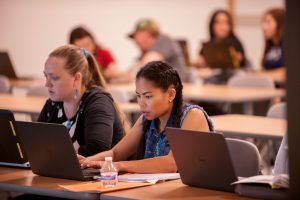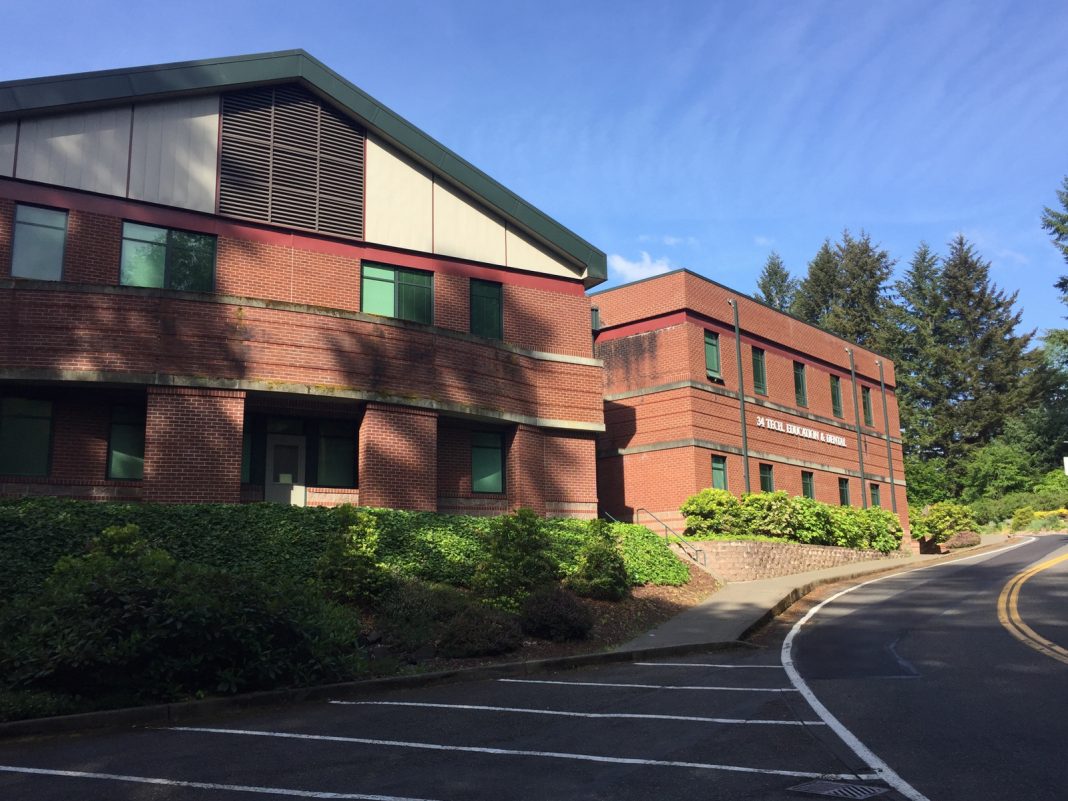Submitted by South Puget Sound Community College
Recent work between South Puget Sound Community College (SPSCC) and community partners has won the college’s Natural and Applied Sciences division Collaborative Opportunities Grant. The grant, awarded by the American Chemical Society, will support the ongoing development of undergraduate research opportunities for SPSCC students. This collaborative program enables SPSCC students interact with—and create a bridge to—faculty, four-year institutions, local businesses, and state agencies.
One partner in the effort, Dragon Analytical Laboratory, Inc., is helping students learn about water quality testing; they have a history of hiring SPSCC alumni and providing internships to students. Another program partner, the Department of Ecology, is giving students an opportunity to do field research, get on-the-ground experience, and even help with database information. Saint Martin’s University is part of the collaboration, as well, providing facilities, lectures and dual-institution events to SPSCC students.

“We couldn’t do it without our community,” said SPSCC Professor Sidnee-Marie Dunn. “This is what scientists do—they come together and share information. This is really happening in our community.” Dunn is a member of the American Chemical Society and was the faculty who applied for the grant on behalf of Natural and Applied Sciences.
SPSCC and its partners will leverage the $2,500 grant to purchase lab supplies and instruments, to bring a speaker on campus for a career and science day, and to fund the poster presentation of student research at the end of the 2016-17 school year.
SPSCC first launched its undergraduate research opportunities in 2015 with funding from the SPSCC Exceptional Faculty Award. The pilot program paired two-year college students with mentors from a variety of sectors to conduct original research. The research is included as a part of for-credit courses that also cover the use of the scientific method, ethics, research methods, proposal writing, and presentation techniques. This educational approach better prepares students to enter a four-year institution and also makes them more competitive applicants.



















































